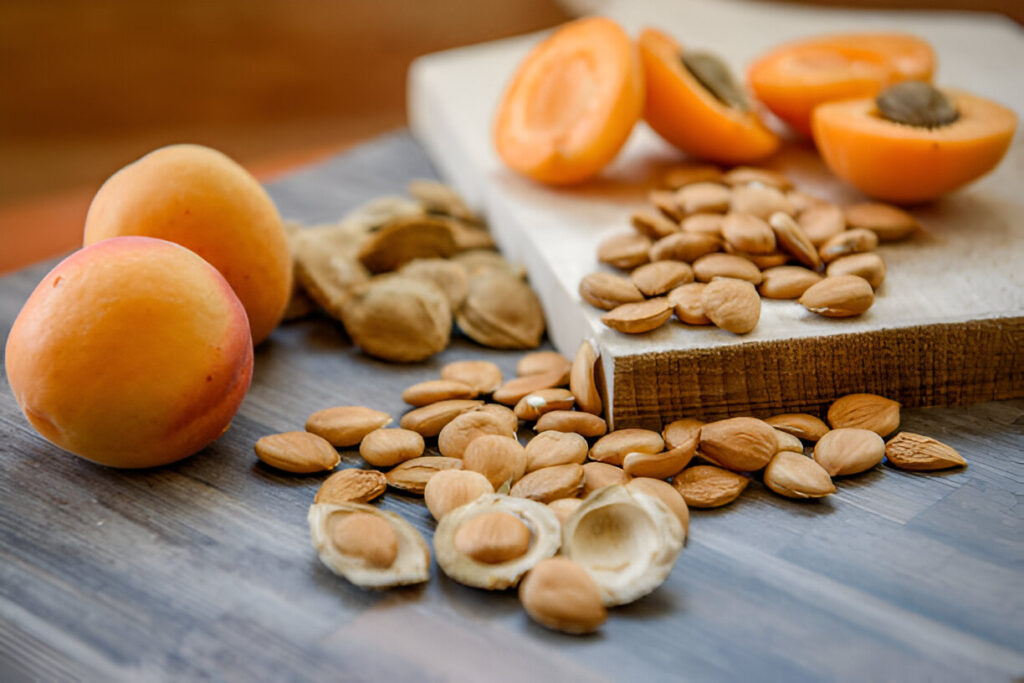Apricot seeds are not just remnants of a delicious fruit; they’re tiny powerhouses of nutrition that potentially benefit your health. While they’re often overlooked in favor of their fleshy counterparts, these kernels can play an essential role in a balanced diet. Understanding their nutritional components and how to integrate them into your daily meals can lead you to discover new and exciting ways to enhance your wellness. Keep reading to learn how to make apricot seeds beneficial to your lifestyle.
Integrating Apricot Seeds Into Your Diet Safely
Although apricot seeds are beneficial, safety is paramount when consuming them. It’s critical to adhere to the recommended daily intake, which can vary based on body weight and health status. Starting with small quantities helps your body adjust and gauge personal tolerance.
One of the safest ways to enjoy apricot seeds is by purchasing them from reliable sources that provide clear instructions. This ensures the kernels have been adequately processed to mitigate potential toxins. Nutriseeds is one example where you can find high-quality apricot seeds along with usage guidance.
Apricot seeds should be consumed with a well-rounded diet to reduce risks further. This practice helps avoid overindulgence while providing diverse nutrients from other food sources. It also allows the body to assimilate the seeds’ benefits more effectively.
Nutritional Value of Apricot Seeds
Apricot seeds, sometimes called apricot kernels, are rich in protein, fiber, and healthy fats, all essential for maintaining a balanced diet. They’re particularly noted for their oil content, which is high in monounsaturated fats, similar to those in olive oil. This makes apricot seeds an excellent heart-healthy option for snacking or adding to meals.
Beyond fats and fibers, apricot seeds also contain various vitamins and minerals. These include vitamin E, a powerful antioxidant, and various vitamins essential for metabolic health. While specific components like amygdalin have sparked both interest and controversy, it’s clear that these seeds have something to offer nutritionally in controlled amounts.
However, incorporating apricot seeds into your diet should be done with awareness of their potency. The amygdalin converts to cyanide in the body, a toxic compound if consumed excessively. It’s, therefore, crucial to understand appropriate serving sizes and to respect the recommended daily limits.
Creative Culinary Uses of Apricot Seeds
The bitter taste of apricot seeds might seem off-putting initially, but they can add a unique flavor profile to various dishes with creativity. When finely ground, they can be mixed into baked goods like bread, muffins, or cookies, granting a subtle almond-like taste due to the similar compounds in both seeds.
Apricot seeds can also be incorporated into homemade granola or energy bars, where their nutty flavor complements the sweetness of dried fruits and grains. They can be sprinkled over salads for a simple yet elegant addition, providing a crunchy texture and nutrient boost to your greens.
Savory dishes aren’t left out when it comes to these versatile kernels. They make a fantastic pesto when blended with fresh herbs, garlic, and olive oil or can be used as a lightly roasted cracker topping. Their unique taste can also elevate the flavors in stews or meat marinades.
Monitoring Your Health When Adding Apricot Seeds to Your Routine
As with any dietary change, it’s important to monitor how your body reacts to introducing apricot seeds. Observing changes in digestive patterns, energy levels, or general well-being can provide insights into how the seeds affect your health and whether they benefit your diet.
If adverse reactions are noticed, such as gastrointestinal distress or symptoms resembling toxicity, it’s crucial to cease consumption immediately and consult a healthcare provider. Maintaining open communication with your doctor regarding supplements or significant dietary changes ensures a safe and supportive approach to personal health.
Regular check-ups can be beneficial when introducing new elements into your health routine. These can help track the impact on your overall health and provide opportunities for healthcare professionals to offer recommendations tailored to your specific needs.
Overall, while apricot seeds can be valuable additions to a wellness-focused diet, they should be consumed with an understanding of their potential risks and benefits. With thoughtful integration and careful monitoring, these small kernels can contribute to the diverse palette of a health-conscious individual’s nutritional framework.



